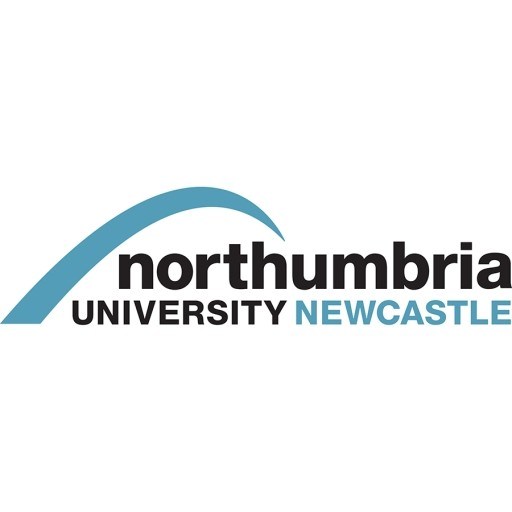Photos of university / #imperialcollege
The postgraduate research programmes at Imperial College London offer a rigorous and comprehensive pathway for students aiming to advance their expertise within their chosen scientific or engineering disciplines. Designed for individuals who wish to pursue original research, these programmes provide an immersive academic environment that fosters innovation, critical thinking, and academic excellence. Students enrolled in postgraduate research programmes at Imperial College benefit from access to world-leading facilities, cutting-edge laboratories, and a collaborative research community that encourages interdisciplinary approaches to complex scientific problems. The programmes typically involve a combination of independent research, regular supervision from experienced academics, and participation in seminars, workshops, and conferences to enhance professional development.
Imperial College's research degrees include PhD (Doctor of Philosophy) and MRes (Master of Research) options across various faculties including Engineering, Medicine, Natural Sciences, and Business. The PhD programme emphasizes the development of original research that contributes significantly to the existing body of knowledge within the specific field. Students are expected to produce a thesis that demonstrates their capacity for independent investigation, critical analysis, and scholarly writing. The MRes programme, on the other hand, offers a more coursework and research-based experience suited for those considering further research or a career in industry. Both pathways are supported by comprehensive training modules, career guidance, and opportunities to collaborate with industry partners.
The application process typically involves submitting a research proposal, academic transcripts, references, and demonstrating alignment with faculty expertise. Successful applicants are integrated into vibrant research groups and are encouraged to publish their findings in peer-reviewed journals. Imperial College’s postgraduate research programmes are highly competitive and designed to attract individuals with strong academic backgrounds and a passion for discovery. Graduates of these programmes go on to contribute to academia, industry, healthcare, and policy, positioning themselves at the forefront of innovation and societal progress. Whether pursuing a PhD or an MRes, students at Imperial College London emerge as independent researchers equipped with advanced skills, a global perspective, and a network of professional contacts to support their future careers.
The postgraduate research programmes at Imperial College London offer a rigorous and comprehensive pathway for students pursuing advanced knowledge and expertise in their chosen fields. These programmes are designed to foster independent research, critical thinking, and innovative approaches to solving complex problems across a wide range of disciplines including engineering, science, medicine, and business. Students engaging in doctoral and masters by research degrees have access to state-of-the-art laboratories, extensive library resources, and collaborative environments that promote knowledge exchange and interdisciplinary study. Throughout their studies, candidates work closely with world-renowned faculty members who are leading experts in their domains, providing mentorship and guidance to enhance research quality and impact. The curriculum emphasizes the development of research skills, scientific writing, and presentation abilities, preparing students for careers in academia, industry, or entrepreneurship. Additionally, postgraduate research students are encouraged to participate in conferences, workshops, and seminars, fostering a vibrant academic community and global networking opportunities. Imperial College London prioritizes a supportive and inclusive research environment, offering dedicated research training programmes, funding opportunities, and career development services. Upon successful completion of their research projects, students are distinguished by their contribution to advancing knowledge and innovation, often resulting in publication in reputable scientific journals and presentations at international forums. Whether pursuing a PhD or a Masters by research, students at Imperial College London are equipped with the skills and experience necessary to make meaningful contributions to their fields and address pressing challenges facing society today.
Program Requirements:
Applicants must possess a relevant bachelor's degree with first-class or upper second-class honours (or an equivalent qualification) from a recognized university. A strong background in the relevant subject area, such as engineering, science, or technology, is essential. Additionally, applicants are required to submit a research proposal outlining their intended area of study, which should demonstrate originality, feasibility, and significance within the field. Evidence of proficiency in English language is necessary for non-native speakers, typically demonstrated through a minimum IELTS score of 6.5 overall, with no element below 6.0, or equivalent standard in other recognised English language tests. Prior research experience and relevant technical skills are highly valued and can strengthen an application. Applicants may be asked to attend an interview, which provides the opportunity to discuss their research interests, qualifications, and motivation for pursuing postgraduate research. References from academic or professional referees who can attest to the applicant’s research potential and academic capability are typically required. The selection process considers the alignment of the proposed research with the strengths and expertise of the academic staff at Imperial College London. Funding and scholarships may have specific additional requirements, such as eligibility criteria or application procedures, which applicants should review carefully. International applicants should ensure compliance with visa requirements and provide documentation to support their application, including academic transcripts, degree certificates, and research proposals. Collaborative or joint research projects may have specific eligibility criteria and additional requirements. All applicants are encouraged to carefully review the specific programme page for detailed and up-to-date information about application deadlines, required documents, and assessment procedures.
The financing options for postgraduate research students at Imperial College London are designed to support students throughout their studies and provide access to a variety of funding sources. Students can apply for a range of scholarships, bursaries, and funding opportunities offered directly by Imperial College or through external organizations. Imperial College provides competitive research scholarships that cover tuition fees and provide a stipend to support living costs. These scholarships are often awarded based on academic merit, research potential, or specific criteria set by funding bodies. Additionally, students are encouraged to seek external funding through national and international scholarship schemes, research councils, charitable foundations, and industry-sponsored awards. The UK Research and Innovation (UKRI) and specific councils such as the Engineering and Physical Sciences Research Council (EPSRC) and the Medical Research Council (MRC) offer funding for eligible students, which include tuition fee support and maintenance stipends. Students can also explore part-time employment opportunities available on-campus or with partner organizations to supplement their income. Imperial College also offers named scholarships for students from particular regions, backgrounds, or fields of study, aiming to promote diversity and inclusion within its research community. It is recommended that prospective students contact the Imperial College research student funding office or visit the official website for detailed and updated information on available funding sources, application procedures, and deadlines. Moreover, many research projects are funded directly by industry partners or through collaborative grants, enabling students to undertake research with financial backing from these organizations. A thorough review of all available options is essential for planning the financial aspect of postgraduate research studies at Imperial College London, and applicants should prepare strong applications to maximize their chances of securing funding.
Postgraduate Research programs at Imperial College London offer students an opportunity to engage in advanced study and original research across a wide range of scientific, engineering, and medical disciplines. These programmes are designed for individuals who wish to pursue scholarly research and contribute to cutting-edge developments in their chosen fields. Imperial College London is renowned for its strong emphasis on innovation, interdisciplinary collaboration, and practical application of scientific knowledge, making it an excellent institution for postgraduate research students aiming to push the boundaries of existing knowledge.
The postgraduate research degrees typically include PhD (Doctor of Philosophy) and MRes (Master of Research), among others. The duration of a PhD program usually spans three to four years, depending on the research topic and funding arrangements. During this period, students work closely with academic supervisors to develop and complete their research projects, produce high-quality thesis dissertations, and often contribute to scientific publications. MRes programs are generally shorter, focusing more on research methods, coursework, and preliminary research activities, serving as a foundation for PhD study or a career in research and development.
Candidates applying for postgraduate research at Imperial are expected to have a strong academic background in their chosen discipline, typically with a first-class or upper second-class undergraduate degree, or an equivalent qualification. A relevant master's degree is often preferred, especially for more specialized fields. The university encourages applicants from diverse international backgrounds and provides various scholarships, funding options, and assistantships to support research students financially.
Research at Imperial College London is organized into various faculties and departments, such as Engineering, Natural Sciences, Medicine, and Business School, each offering tailored postgraduate research environments. Students benefit from access to state-of-the-art laboratories, research facilities, and collaborations with industry partners and research institutions worldwide. The university promotes an innovative and supportive research culture, offering training workshops, seminars, and conferences to enhance academic and professional development.
Postgraduate research students at Imperial are integrated into an active academic community, fostering interdisciplinary collaborations, networking opportunities, and participation in scientific events. The university’s location in London provides additional advantages, including proximity to leading scientific institutions, biotech firms, hospitals, and industry hubs, which can facilitate internships, collaborative projects, and career prospects after graduation.
Completing a postgraduate research degree at Imperial College London not only equips students with advanced research skills but also prepares them for academic careers, industry roles, or entrepreneurship in science and technology sectors. The success and recognition of Imperial graduates are reflected through their contributions to academia, innovation, and solving real-world problems, embodying the university’s motto of "scientia ac providentia"—knowledge and service.
Overall, Imperial College London’s postgraduate research programs are distinguished by their rigorous academic standards, world-class supervision, excellent research infrastructure, and vibrant academic community, making them highly sought after by aspiring researchers worldwide.



